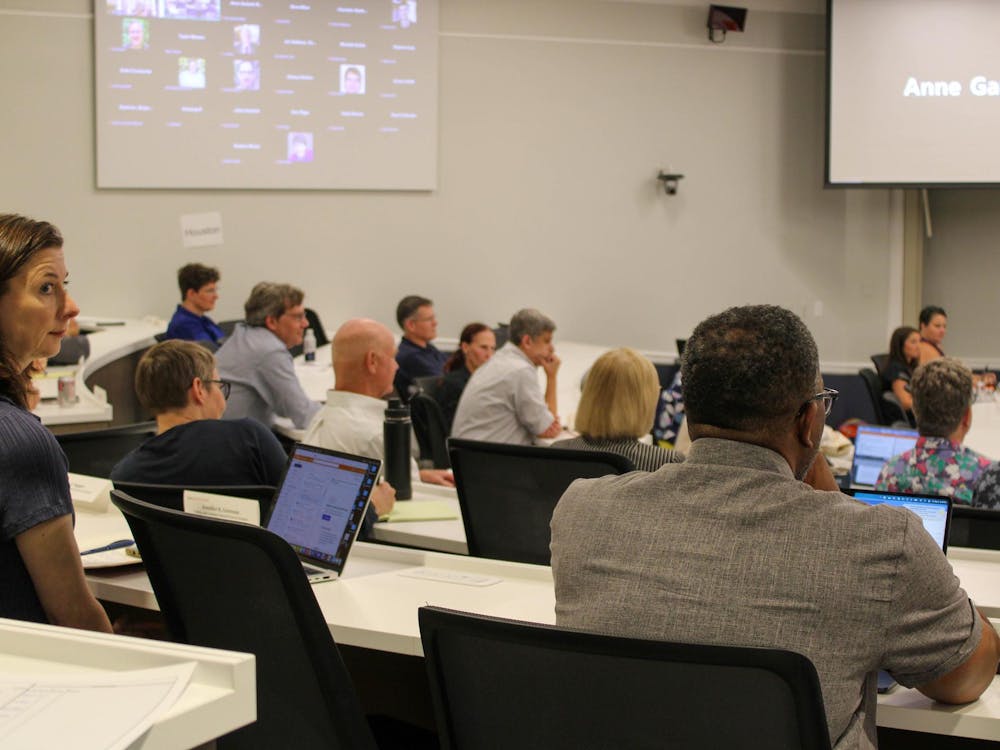The American Civil Liberties Union of Virginia filed a petition Monday with the U.S. Supreme Court to review an April ruling by the Fourth Circuit Court of Appeals that banned advertisements for alcoholic beverages in college student publications. The Court ruled in favor of The Virginia Department of Alcoholic Beverage Control after The Cavalier Daily and the Collegiate Times student newspaper at Virginia Tech challenged the ban.
Virginia ABC declined to provide an opinion on the ACLU's petition, but Public Affairs Director Becky Gettings stated in an e-mail, "The challenged regulation remains in effect at this time, and the office of the Attorney General will file an appropriate response to the petition."
According to an ACLU press release, the Court made an error in judgment by concluding simply that there was a 'common sense' link between banning alcohol advertisements in college papers and decreasing the demand for alcohol among college students.
"In our view, the Court ignored all the evidence that there was no such connection," ACLU legal director Rebecca Glenberg said.
Glenberg said the state's expert acknowledged that when the government bans advertising in one narrow segment of the media, advertisers typically increase their spending in other segments of the media to reach the same audience, likely causing little reduction in the overall alcohol advertising students see. The expert also acknowledged that there are more effective ways to combat underage and binge drinking than to ban advertising and did not present any studies that actually looked at bans on advertising in college newspapers, Glenberg said.
Student publications and the ACLU see the ban as an infringement on first amendment rights and a case of unfair targeting.
"We would argue we're not really a college publication," said Peter Velz, editor-in-chief of the Collegiate Times, in reference to the diversity of the paper's readership within the Blacksburg community. "Just because a subsection of those readers are under 21 doesn't mean those people define what the advertisers are."
Even though this ban affects student newspapers financially, Velz said, the ruling is at its heart a free speech issue because it limits students' control over the content of the newspaper.
"The ABC ruling is shooting for an easy target," Velz said. "What the ACLU highlights are alternative ways proven to reduce alcohol consumption. What's being targeted is limiting the editorial choice of a newspaper."
The debate over whether to allow ads for alcohol in student publications spans several years. In 2005, Glenberg explained, the ACLU filed the case, and in 2008, the U.S. District Court ruled in favor of the ACLU and ordered the Virginia ABC to stop enforcing the ban. Nevertheless, the state appealed, and a three-judge court of appeals panel reversed the lower court ruling April 19. The ACLU asked the full court of appeals to hear the case, but they declined in May, whereupon the organization drafted a petition to the Supreme Court.
Kelly Wolff, general manager of Educational Media Company at Virginia Tech, Inc., said the Fourth Circuit Court ruling conflicts with an adjacent Third Circuit Court ruling. In 2004, Pitt News of the University of Pittsburgh won a case in the Pennsylvania state Supreme Court overturning ban. This discrepancy between circuit rulings is one factor that may lead the Supreme Court to decide the case, Wolff said.






